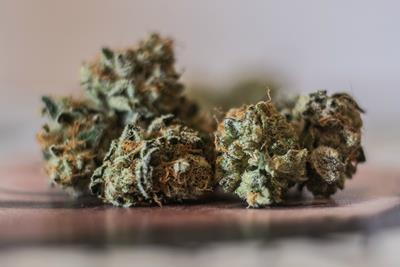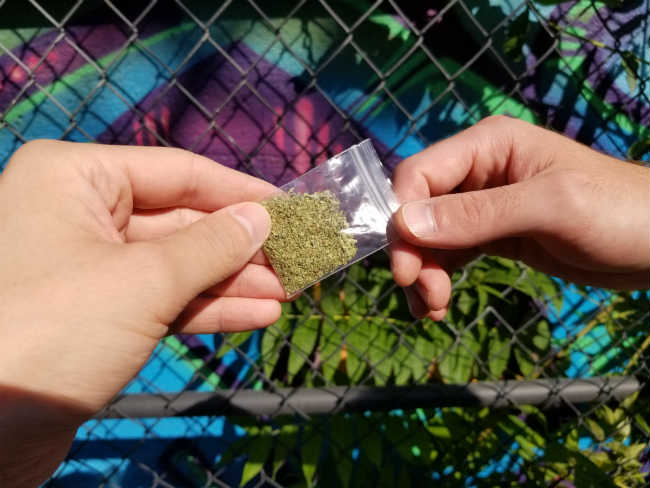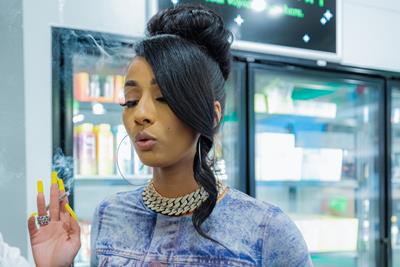
Sunday May 17, 2020
 420 Culture
420 Culture
A lot of terms get thrown around when discussing marijuana reform – drug schedules, strain types, cannabinoids – but perhaps the most frequently confused are the terms “legalization” and “decriminalization.” With Joe Biden announcing a new plan for cannabis decriminalization, we decided now would be a good time to brush up on the two terms.
Though often used interchangeably, decriminalization and legalization are definitely not the same thing. Whether your state has decriminalized, legalized, or none of the above, the distinction is important to understand. This will protect you from costly fines, help you decide how to vote, and assist you in planning a 420-friendly vacation in the future once coronavirus is a thing of the past.
What Does it Mean to Decriminalize Cannabis?
Cannabis decriminalization means just that: to remove criminal charges against people in possession of small amounts of cannabis. Instead of criminal charges, possession of small amounts of would result in a civil fine, much like a parking ticket. Just what constitutes a “small amount” varies by state so check your local laws to be sure.

Decriminalization does not, however, grant access to legal cannabis distributors. As such, decriminalization would not reduce black market activity (and, in fact, could have the opposite effect if more people begin purchasing it) and would not protect consumers against contaminants or unsafe distribution practices.
What Does Cannabis Legalization Mean?
Cannabis legalization means that it’s not only okay to own a little weed, but that it’s legal to purchase it, too! Though the details of legalization vary widely (ranging from legal caregiver-ship to full-on shopping centers filled with certified, boutique-quality flower, concentrates, and edible products), the mere fact that cannabis is legal there means that those states are experiencing some major economic gain. Entrepreneurs are catapulting their success, job-seekers are finding ample employment in the industry, and taxes from sales are being put right back into the communities they serve.
Furthermore, legal access to cannabis helps protect consumers from contaminants or unsafe packaging/distribution practices.
Products are regularly tested for things like potency, pesticides, residual solvents and other potential health and safety hazards. Dangerous pesticides and back alley deals are of little concern in a legal market.
Legal cannabis also helps researchers gain a better understanding of how cannabis itself effects the body by removing variables inherent in unregulated products. Study participants are more likely to answer survey questions honestly and over a longer period of time, and variables like unsafe products or limited strain options are removed from the equation.
The Great Debate: Decriminalize or Legalize?
Many states have decriminalized cannabis (not legalized) as some sort of “middle ground” to the whole cannabis reform movement. In attempt to appease those who fear legalization while acknowledging the negative social impact of criminalizing the plant, these states have passed legislation that removes criminal charges for those caught with a small amount cannabis and/or cannabis paraphernalia. Though it may seem progressive on the surface, it is bound to do more harm than good.
As long as there is demand for a product, there will be a market for it. If criminal charges are no longer a risk factor, more people are apt to try cannabis for both recreational and medical purposes. If these people cannot get their product from a legal distributor, then illegal distributors there must be! These black market operations are not only dangerous for consumers, but they amp up the need for drug enforcement and put more, not less, strain on the system. They cost communities more money and resources and can put less back into it.

Though decriminalization is a promising step toward nationwide cannabis reform, it does little for the communities who enact it. When faced with the decision to either decriminalize or legalize cannabis, the answer should always be the latter. The benefits of cannabis legalization far outweigh the alternative and it’s time we all stand up for it. If you live in one of the many states with marijuana legislation on the ballot, be sure to vote to “legalize,” not “decriminalize” the plant and all of its by-products to expedite cannabis reform in your area.
The “Marijuana Movement” has made some incredible strides over the past few years, as support for reform becomes impossible to deny. Don’t allow legislators to slap a band-aid over the issue and call it good, demand cannabis legalization over decriminalization on the next ballot.
What’s your stance on the legalization/decriminalization debate? Share your thoughts in the comments below.
Photo Credit: Gio Bartlett (license)







